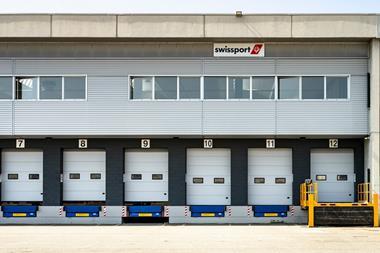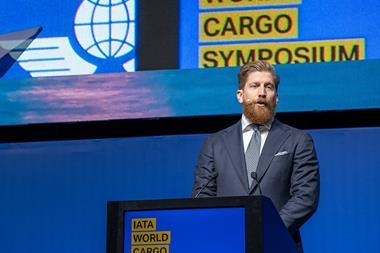IATA director general and chief executive Tony Tyler described the Sir Howard Davies’ Airport Commission’s conclusion in favour of a third runway as “a relief” but he also had “serious reservations” about some of the conditions that had been attached to its decision.
He told the Runways UK conference in London on July 6 that “with the direction clear—to expand capacity at Heathrow—we can now engage in a purposeful dialogue that will lead to acceptable results on the important issues of costs and managing the environmental impact.”
He was confident that environmental targets would be achieved, and that disturbance to local residents from aircraft noise could be mitigated.
However, he continued, a major concern is the combination of a new £1bn community compensation fund and a new aviation noise levy.
“The Commission argues that the compensation fund will be paid by Heathrow Airport, while the new aviation noise levy will be paid by airport users. But the truth of the matter is that the £1bn would also be paid by users. So airlines will end up paying over and over,” he said.
This, he argued, was “putting the cart before the horse".
"The airport, the airlines and the local community need to agree on the desired outcomes first and then agree what measures are needed to achieve them and at what cost,” he said.
The Commission has proposed a ban on night flights between 11.30pm and 6am.
But, said Tyler, experience at other airports shows that using the ICAO-recommended Balanced Approach, which includes reduction of noise at source, land-use planning and management and noise abatement procedures, operating restrictions on aircraft would be needed only as a last resort.
Tyler said: “The Final Report says that this restriction is outweighed by the increase in capacity, but even so, admits that this will weaken Heathrow’s attractiveness as a hub.
"The restriction is an overly prescriptive solution when other, better, options—possibly with operational measures—may exist."
The Balanced Approach also emphasises the importance of land-use planning. The Commission recommends that a noise envelope be set to limit the level of noise and suggests that the total number of people affected by noise be capped at current levels.
“If that were to happen, planning authorities would have to take responsibility to prevent new housing from being built in areas exposed to aircraft noise.”
Otherwise, as new, quieter aircraft come into service it will be a case of "one step forward, two steps back," he said.
Close scrutiny of all costs associated with the new capacity, and how these are allocated to different stakeholders, was also key, Tyler argued.
“Pre-funding the construction is not an acceptable option for airlines. Again, ICAO sets out the principles and conditions under which pre-funding is acceptable, and it is hard to argue that this project qualifies.”
He used the analogy of road users being asked pay tolls for a road or bridge that is not yet built, adding: “So why should users of Heathrow today be paying for infrastructure that will only be available several years from now?”
Pre-funding would mean that airlines serving Heathrow today would foot the bill for new competitors to come into the market.
He also dispelled the “myth” that Heathrow is a pot of gold for the airlines.
“The two biggest players at Heathrow—IAG and Virgin Atlantic—are not making their cost of capital. And British Midland, for many years a big Heathrow player, has disappeared.
"And let’s not forget that the airlines have their own businesses to invest in —upgrading fleets and products.”
Airport charges have greatly outpaced inflation, Tyler said.
The UK’s policy record on supporting aviation was not encouraging and seeing the third runway project through successfully “is going to take a lot of political commitment”.
Tyler concluded: “Sir Howard and his Airports Commission have performed a valuable service to Britain in completing such a thorough and decisive report.
"But it would be politically naïve to presume that the case has been won. The opponents of expansion at Heathrow are as vocal as ever. To win this debate, we must mobilise the silent majority in the UK who want Britain to remain an open, competitive and connected economy.”










